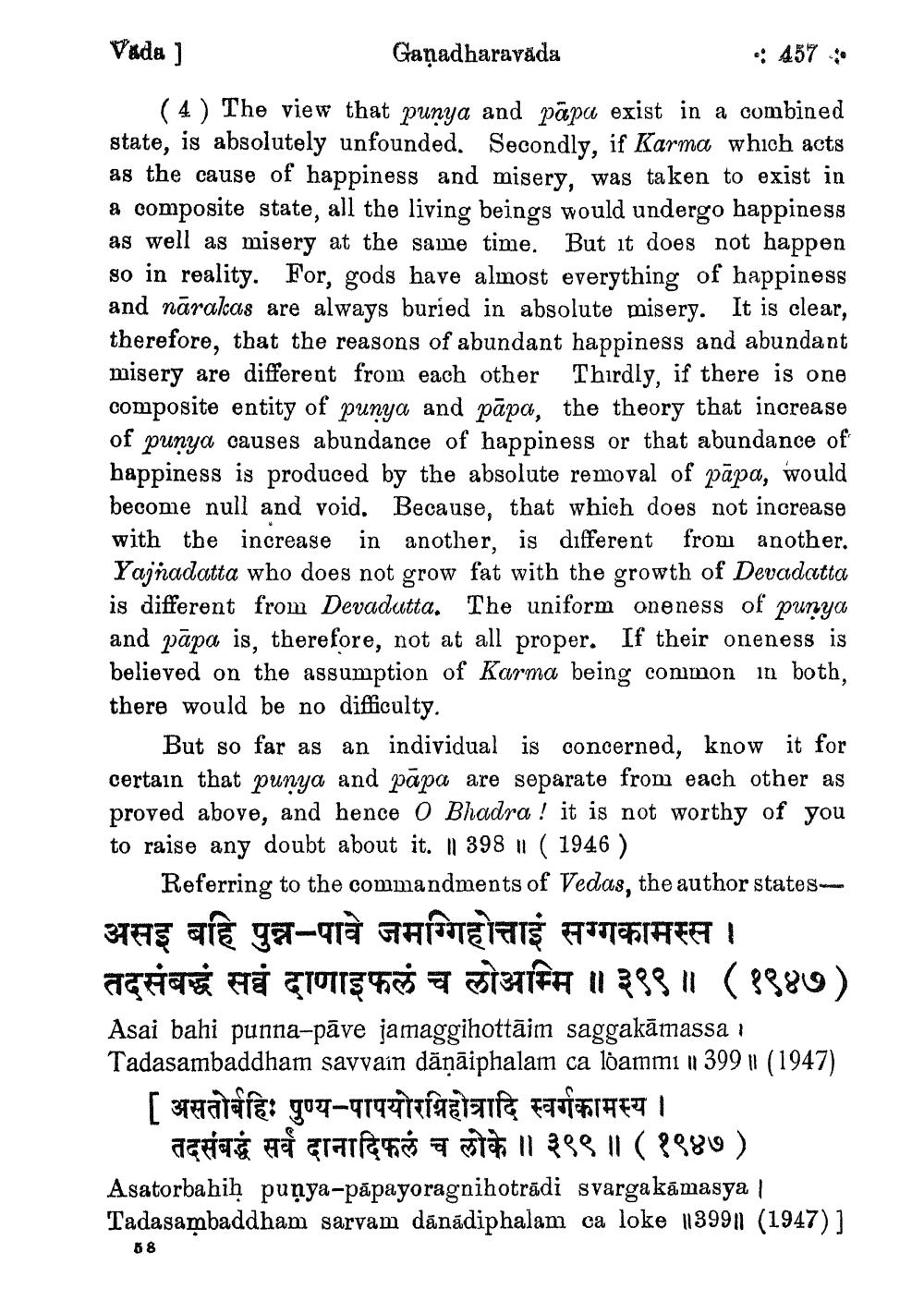________________
Vada ]
Gañadharavada
: 457
(4) The view that punya and pāpa exist in a combined state, is absolutely unfounded. Secondly, if Karma which acts as the cause of happiness and misery, was taken to exist in a composite state, all the living beings would undergo happiness as well as misery at the same time. But it does not happen so in reality. For, gods have almost everything of happiness and nāralas are always buried in absolute misery. It is clear, therefore, that the reasons of abundant happiness and abundant misery are different from each other Thirdly, if there is one composite entity of punya and pāpa, the theory that increase of punya causes abundance of happiness or that abundance of happiness is produced by the absolute removal of pāpa, would become null and void. Because, that which does not increase with the increase in another, is different from another. Yajnadatta who does not grow fat with the growth of Devadatta is different from Devadatta. The uniform oneness of punya and pāpa is, therefore, not at all proper. If their oneness is believed on the assumption of Karma being common in both, there would be no difficulty.
But so far as an individual is concerned, know it for certain that punya and papa are separate from each other as proved above, and hence 0 Bhadra ! it is not worthy of you to raise any doubt about it. Il 398 H ( 1946 )
Referring to the commandments of Vedas, the author statesअसइ बहि पुन्न-पावे जमग्गिहोत्ताइं सग्गकामस्स । OCH HET GROTE GT3T1FH 11 38811 (8886 ) Asai bahi punna-pāve jamaggihottāim saggakāmassa i Tadasambaddham savvain dāņāiphalam ca lòammi il 399 II (1947) [ असतोर्बहिः पुण्य-पापयोरग्निहोत्रादि स्वर्गकामस्य ।
तदसंबद्धं सर्व दानादिफलं च लोके ॥ ३९९ ॥ (१९४७ ) Asatorbahih puạya-pāpayoragnihotrādi svargakāmasya | Tadasambaddham sarvam dānādiphalam ca loke 1139911 (1947)]
58




